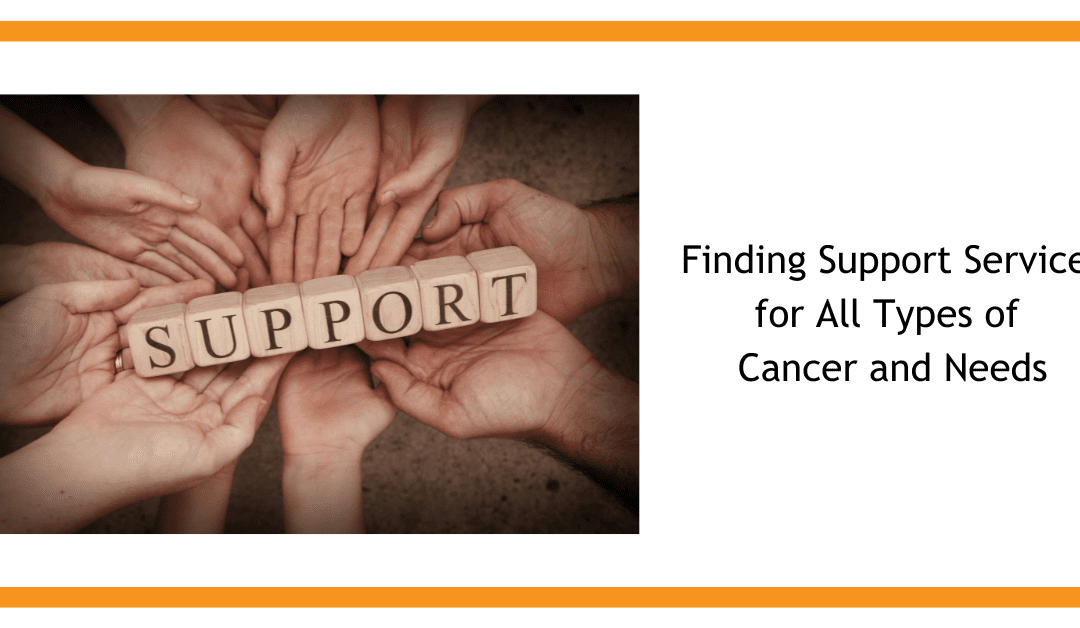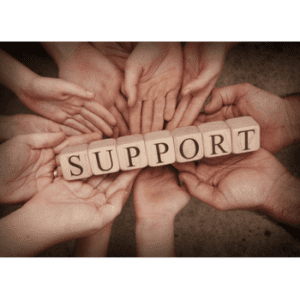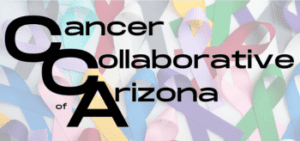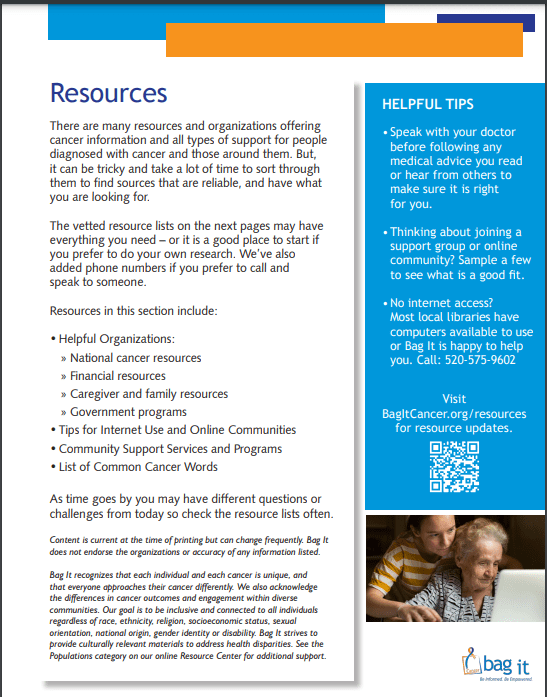
Finding Support Services for All Types of Cancer and Needs
A cancer diagnosis brings changes, challenges and new information needs to your life. Fortunately, there are many services and programs available to support you and your family. 
Your healthcare team (especially social workers and navigators) can be a wealth of information about the resources available. You and your caregivers and family members can also seek out the many services available in your community and virtually.
You may benefit from a support group, a social group, a yoga or meditation class, housekeeping services, physical activity programs (e.g. LiveStrong at the YMCA) or places where you can get help paying for medical care or living expenses. There is something for everyone whether you are ready today, tomorrow or in a few years so take advantage of all the wonderful work that organizations are doing t ohelp those diagnosed with cancer and their friends and family. Cast a wide net to find the exact kind of support you need to help you live your best life with a cancer diagnosis.
Are you a survivor or caregiver? We encourage you to seek out support services and programs near you. Are you a healthcare provider? Take a few minutes to learn about the many resources nationally or in your community that can benefit your patients.
Here are some of the types of support and information we provide in our Bag and Cancer Resource Center. (To explore resources on your own, see tips below.)
- Contact info for programs that help with practical needs including financial assistance, transportation and lodging.
- Lists of organizations providing support groups and resources for 14 categories of types of cancer such as blood, breast, brain and lung.
- Resources for clinical trials, legal rights and supportive care.
- Specialized help for populations groups such as American Indians/Alaskan Natives, Latino/Latina, LGBTQI+, Black/African Americans and adolescents to young adults.
Sometimes forgotten is the need for social support. Barbara L. Andersen, PhD at The Ohio State University and Caroline Dorfman, PhD at Duke University wrote The Importance of Social Support for People with Cancer that includes links to other articles such as Six Ways to Support a Friend with Cancer.
Cancer Collaborative of Southern Arizona
 Last month, Bag It Cancer, as part of the Cancer Collaborative of Southern Arizona held an Open House for Healthcare Providers to share with them the numerous services and resources provided by nonprofit organizations in our community to help their patients. The providers who attended were very positive and excited to learn about all the programs available and gathered lots of resources they can share with their patients and their families.
Last month, Bag It Cancer, as part of the Cancer Collaborative of Southern Arizona held an Open House for Healthcare Providers to share with them the numerous services and resources provided by nonprofit organizations in our community to help their patients. The providers who attended were very positive and excited to learn about all the programs available and gathered lots of resources they can share with their patients and their families.
The purpose of the Cancer Collaborative of Arizona (CCA) is to provide a community supporting our common mission – providing resources and support for those dealing with the challenges of a cancer diagnosis.
How to Find Support Services and Programs Near You
- Ask your healthcare team if they offer support services and programs at their facility, or where you can find them locally.
- Check with other cancer medical providers in your area. Many serve all patients, no matter where they receive treatment.
- Contact the national offices of large cancer nonprofits to see if they have a local chapter in your area.
- Contact local nonprofits that offer programs for your type of cancer.
- Check with faith-based organizations, local libraries, community centers, and health departments.
- For seniors, reach out to your local Area Agency on Aging.
- Ask other people with cancer and their caregivers you meet along the way.
Explore Our Vetted Support Services List
There are many resources and organizations offering cancer information and all types of support for people diagnosed with cancer and those around them. But it can be tricky and take a lot of time to sort through them to find sources that are reliable, and have what you are looking for.
The vetted resource lists on the Resources document at right may have everything you need–or it is a good place to start if you prefer to do your own research. We’ve also added phone numbers if you prefer to call and speak to someone.


Recent Comments